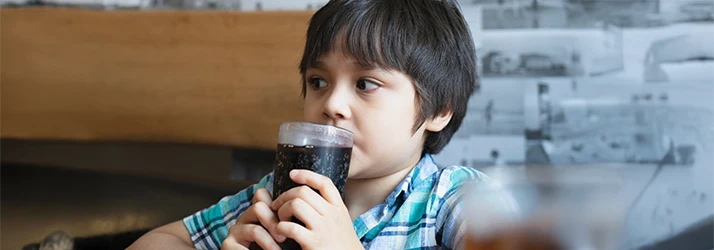Understanding Tooth Discoloration in Children: Causes and Treatments

Your child’s smile is one of their most expressive features. So, when you notice dark spots, yellowing, or unusual coloring on their teeth, it’s completely natural to be concerned. At Campbell Pediatric Dentistry, we help parents uncover what’s behind tooth discoloration in Campbell CA and Los Gatos CA and offer safe, effective ways to restore your child’s natural smile.
Let’s break down what causes tooth discoloration in kids, how to prevent it, and what to do if stains are already showing up.
What Causes Tooth Discoloration in Children?
Tooth discoloration in children isn’t always a sign of poor health, but it can indicate an issue that needs attention. Here are the most common culprits:
- Inadequate Oral Hygiene
When kids don’t brush and floss well, plaque builds up and starts to stain the teeth yellow or brown. Left untreated, this can harden into tartar, which is harder to remove and can contribute to cavities. - Fluorosis
Fluoride is great for strengthening enamel, but too much during early development can cause white lines, streaks, or even brown spots on teeth. This is called fluorosis, and it's typically cosmetic but can be permanent. - Medication-Related Stains
Certain antibiotics, like tetracycline and doxycycline, can cause internal discoloration if taken while teeth are still forming. Iron supplements, frequently prescribed for anemia, can also leave dark stains on tooth surfaces. - Tooth Trauma
A bumped or injured tooth can change color, turning gray, brown, or even black over time. This happens when internal bleeding or nerve damage affects the tooth from within. - Enamel Hypoplasia
This developmental condition results in thin or poorly formed enamel, making teeth appear yellow, chalky, or unevenly colored. It also increases the risk of cavities and sensitivity. - Foods and Drinks That Stain
Juices, berries, sauces, and even tomato-based foods can stain young teeth over time. The more frequently they’re consumed—and the longer they linger on teeth—the greater the chance of discoloration. - Genetics
Sometimes, darker or yellowish teeth simply run in the family. Genetics can influence enamel thickness and natural tooth color.
How to Prevent Tooth Discoloration in Children
While you can’t always control every factor, there’s a lot you can do to keep your child’s teeth looking bright:
- Brush and floss daily: Make brushing twice a day with fluoride toothpaste and flossing a non-negotiable part of the routine.
- Be mindful of staining foods: Limit dark beverages like grape juice, sodas, and even soy sauce. Rinse with water after consuming them.
- Use fluoride wisely: Avoid overuse of fluoride toothpaste. A pea-sized amount is enough for children over three.
- Visit the dentist regularly: Routine dental cleanings can catch stains early and help prevent more serious issues.
- Treat injuries quickly: If your child chips or injures a tooth, schedule a dental evaluation to reduce the risk of internal discoloration.
What to Do if Your Child Already Has Discolored Teeth
Not all stains are permanent, and many can be improved with treatment. Here are some safe options:
Professional Cleaning
Plaque- and tartar-based stains are often removed during a regular cleaning. It’s a quick, simple way to brighten your child’s smile.Whitening Treatments
For older kids or teens, supervised whitening options may be considered—but only with a pediatric dentist’s guidance.Dental Bonding or Crowns
In cases of trauma or enamel defects, restorative treatments like bonding or crowns can improve appearance and protect the tooth’s structure.Enamel Microabrasion
For surface stains, a gentle abrasive technique can sometimes remove discoloration without needing whitening agents.
When to Schedule a Pediatric Dental Visit
Not sure whether the stain is harmless or something more serious? Book a visit with Campbell Pediatric Dentistry if you notice:
- Sudden changes in tooth color
- Dark lines or spots that won’t brush away
- Any pain, sensitivity, or swelling near the discolored area
- Signs of enamel damage, like rough patches or thin spots
We’ll examine your child’s smile, determine the cause, and recommend the safest, most effective treatment options.
Worried About Tooth Discoloration? We Can Help.
We take every smile seriously—especially the little ones. If your child is showing signs of tooth discoloration, don’t wait. Our gentle, experienced team is here to identify the cause and restore your child’s confidence with a healthy, clean smile.
Contact us today to schedule your child’s visit and get expert answers to all your dental care questions.
Campbell Pediatric Dentistry
476 E Campbell Ave Suite A
Campbell, CA 95008
Los Gatos Kids Dentistry
15595 Los Gatos Blvd Suite C
Los Gatos, CA 95032



